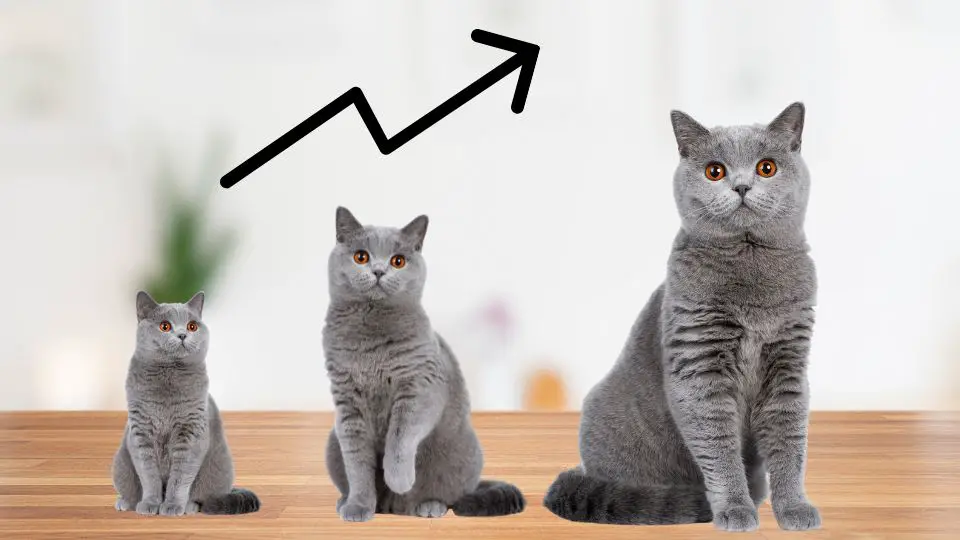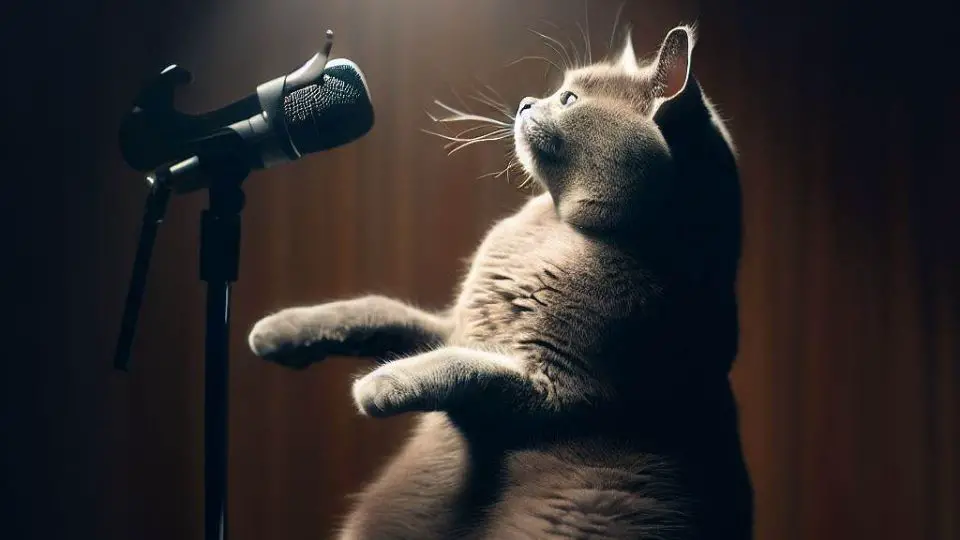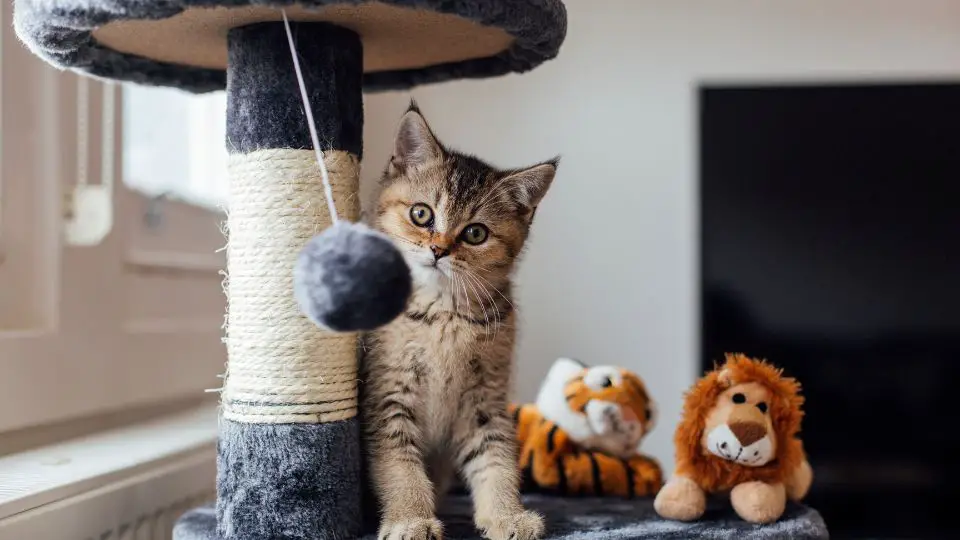British Shorthairs are a beloved breed of cat known for their plush coats and easygoing personalities.
The average lifespan of a British Shorthair is around 12-20 years, but many factors can affect their lifespan. From genetics to diet and environmental factors, there are many things to consider when it comes to your furry friend’s longevity.
In this article, we’ll explore the factors that affect the lifespan of British Shorthairs and provide tips for ensuring a happy and healthy life for your feline companion.
How Long Do British Shorthairs Live?
British Shorthair cats have a relatively long lifespan compared to many other cat breeds. On average, they can live anywhere from 12 to 20 years. The lifespan of a British Shorthair can be influenced by a variety of factors, including genetics, environment, and overall health.
Compared to other cat breeds, British Shorthairs have a relatively long lifespan. For example, Siamese cats have an average lifespan of 10 to 12 years, while Persians typically live between 12 to 16 years. However, it’s important to keep in mind that individual lifespan can vary depending on factors such as genetics, diet, exercise, and overall health.
While British Shorthairs are generally healthy cats, they can be prone to certain health issues that may impact their lifespan. For example, heart disease, kidney disease, and dental problems can all affect a cat’s lifespan. If you have a british shorthair, you have to provide your small pet with regular veterinary care, a healthy diet, and plenty of exercise to help ensure a long and happy life.
How long do british shorthars live in the wild?
As British Shorthair cats are a domesticated breed, they do not live in the wild. They are not adapted to survive in the wild and rely on human care and shelter for their survival.
British Shorthair Life Stages
British Shorthair cats have a relatively long lifespan compared to some other breeds, but like all animals, they go through distinct life stages.
Kittenhood (0-1 year)
During kittenhood, British Shorthairs are full of energy and curiosity. They are playful and love to explore their surroundings. Kittens should be kept indoors and given plenty of toys and activities to keep them occupied.
At this stage, kittens require regular veterinary check-ups and vaccinations to ensure their health and well-being. They should also be fed a nutritious and balanced diet that meets their unique needs.
Here are some tips for a happy kittenhood for your British Shorthair:
- Provide a safe and comfortable living space: Make sure to provide a safe and comfortable space for your kitten to explore and play in. Consider a cozy bed, plenty of toys, and a scratching post.
- Feed a balanced and appropriate diet: A balanced and appropriate diet is essential for your kitten’s growth and development. Consult with your veterinarian for recommendations on the best food for your kitten.
- Play and socialization: Socialization is important for your kitten to develop into a well-adjusted adult cat. Playtime with toys and socialization with other pets and people can help with this.
- Regular veterinary check-ups: Regular veterinary check-ups are important for monitoring your kitten’s health and addressing any potential health issues early on.
- Training: Start training your kitten early on to develop good habits and behaviors. This can include litter box training and basic commands.
Adolescence (1-2 years)
As British Shorthairs reach adolescence, they start to settle down a bit, but they still have plenty of energy and need plenty of playtime and exercise.
At this stage, ensure that they receive adequate training and socialization to become well-adjusted adults. This is also the time when they will undergo spaying or neutering, which can help prevent certain health issues and behavioral problems.
Adulthood (1-8 years)
Once a British Shorthair reaches adulthood, they become more calm and affectionate. They require less playtime and are more content to spend their time lounging around the house.
At this stage, you have to continue providing a nutritious diet and regular veterinary care to maintain their health. British Shorthairs at this stage of life may also be more prone to certain health issues, such as dental problems, so it is important to monitor their health closely.
Senior Years (8+ years)
In their senior years, British Shorthairs may start to slow down and become less active. They may also experience age-related health issues such as arthritis, vision and hearing loss, and decreased kidney function.
Ensure that they receive regular veterinary check-ups and appropriate care to manage any health issues that may arise. They may also benefit from adjustments to their diet and exercise routine to maintain their health and comfort.
Here are some tips for ensuring a happy and healthy senior life stage for your British Shorthair cat:
- Regular veterinary check-ups: As cats age, they may be more susceptible to health issues such as arthritis, kidney disease, and dental problems. Regular check-ups can help catch any issues early and allow for proper treatment.
- Specialized diet: Senior cats may have specific dietary needs, such as lower-calorie or higher-protein diets. Consult with your veterinarian to determine the best diet for your cat’s individual needs.
- Comfortable sleeping arrangements: Older cats may have difficulty jumping up to high surfaces, so provide them with comfortable, easily accessible sleeping areas.
- Adequate exercise and mental stimulation: Even though older cats may be less active than their younger counterparts, it’s still important to provide them with opportunities for exercise and mental stimulation. Interactive toys and gentle playtime can help keep your senior cat engaged and healthy.
- Modifications to the home environment: Make any necessary modifications to your home to accommodate your senior cat’s needs. This may include providing ramps or steps to high surfaces, adding litter boxes to more convenient locations, and making sure the home is free of hazards that may cause falls or injury.
- Lots of love and attention: Senior cats may need more love and attention than they did in their younger years. Spend quality time with your cat and provide them with plenty of affection to help ensure a happy and fulfilling life.
Factors that Affect a British Shorthair’s Lifespan
British Shorthair cats are known for their sturdy and robust build, but like all living beings, they are not immune to the effects of aging and external factors that can impact their overall lifespan. Here are some of the most significant factors that can affect the lifespan of a British Shorthair cat:
Genetics
Genetics play a significant role in determining the lifespan of a British Shorthair cat. Some health issues such as heart disease, kidney disease, and cancer can be hereditary, meaning they are passed down from one generation to the next. For this reason, it is essential to obtain a cat from a reputable breeder who conducts proper health testing and maintains high breeding standards.
Diet and Nutrition
Diet and nutrition are also critical factors in a cat’s lifespan. Providing your British Shorthair with a balanced and nutritious diet can help promote good health, prevent obesity, and ward off certain health conditions. Ensure that your cat’s diet consists of high-quality protein, fiber, and essential vitamins and minerals, and avoid feeding them table scraps or human food.
Here are some tips for a healthy diet for a British Shorthair:
- Feed them a high-quality, protein-rich diet: Choose a cat food that lists a high-quality source of protein, such as chicken or fish, as the first ingredient. Avoid foods that contain fillers or artificial additives.
- Offer wet food in addition to dry food: Wet food can provide additional hydration for your cat, which is important for their overall health.
- Avoid overfeeding: British Shorthairs can be prone to obesity, which can lead to health problems. Follow the feeding guidelines on the cat food packaging and monitor your cat’s weight regularly.
- Provide fresh water: Make sure your cat has access to clean, fresh water at all times. Some cats prefer running water, so consider getting a cat fountain.
- Limit treats: Treats should make up no more than 10% of your cat’s daily caloric intake. Stick to healthy, low-calorie options, such as freeze-dried meat treats.
Exercise and Physical Activity
Physical activity and exercise are also crucial for maintaining a healthy lifespan in British Shorthairs. Regular exercise can help your cat maintain a healthy weight, improve their cardiovascular health, and keep them mentally stimulated. Encourage your cat to engage in regular play sessions or offer them toys that encourage physical activity, such as scratching posts or interactive toys.
Access to Veterinary Care
Access to veterinary care is essential in ensuring that your British Shorthair lives a long and healthy life. Regular check-ups with your veterinarian can help detect any health issues early on, allowing for prompt treatment and management. Additionally, routine vaccinations and preventive care measures, such as flea and tick prevention, can help prevent the onset of various health issues.
Environmental Factor
Environmental factors can also impact a British Shorthair’s lifespan. Exposing your cat to toxins, pollution, and harsh weather conditions can compromise their immune system and overall health. Therefore, providing a clean and safe living environment is essential in ensuring your cat’s health and longevity.
Conclusion
In conclusion, the lifespan of British Shorthair cats can vary based on various factors such as genetics, diet and nutrition, exercise and physical activity, access to veterinary care, and environmental factors.
However, with proper care and attention, British Shorthairs can live a long and healthy life, ranging from 12-20 years. It is important for owners to provide their cats with a balanced and appropriate diet, regular exercise, and access to veterinary care to ensure they live a happy and fulfilling life.







